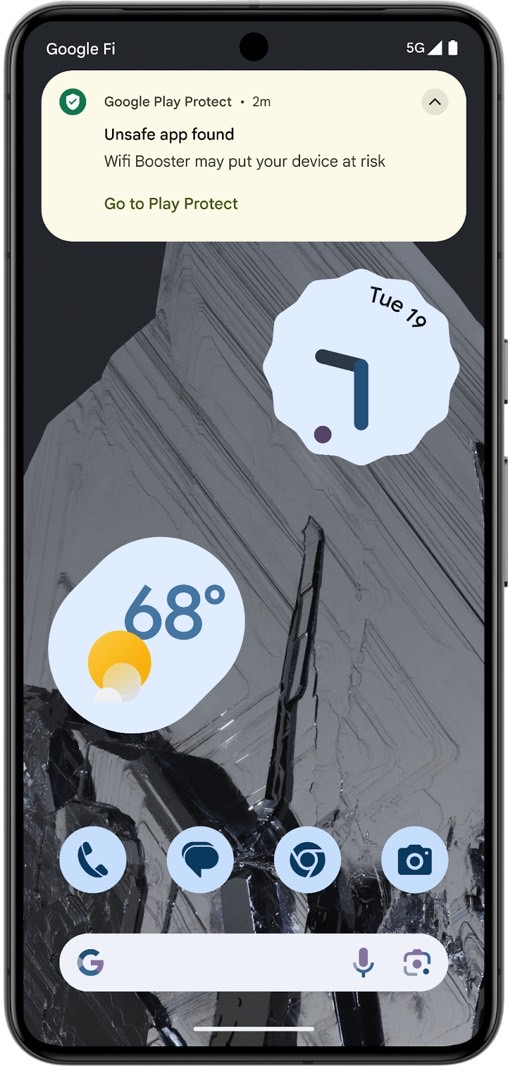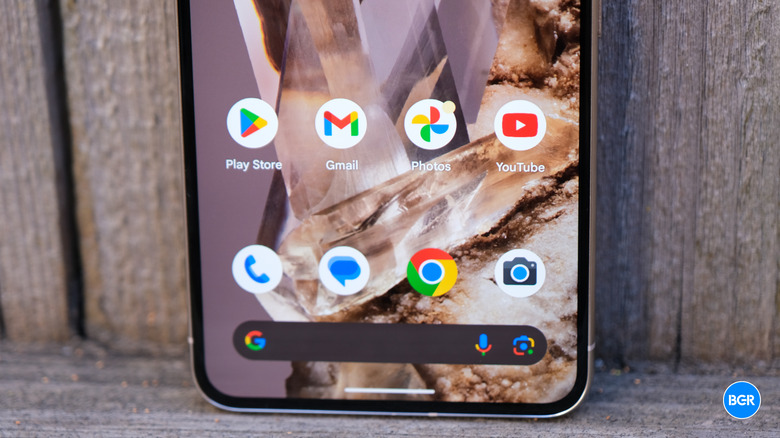Google AI Will Protect Your Pixel From Spam Calls And Rogue Apps
When ChatGPT went viral a couple of years ago, some law enforcement agencies warned that AI would make it even easier for hackers to develop dangerous tools. We even saw concepts of undetectable malware created with the help of chatbots despite the protections that are typically built into these programs.
More recently, we heard about an attempted Gmail account takeover that utilized a voice call with what seemed to be a Google support person. The tech-savvy engineer who was targeted ended up spotting the scam and concluded that he was talking with an AI chatbot rather than a real human. While that hack attempt failed, attackers might still try to employ various AI tactics to get into your accounts.
But AI like Google's Gemini can be used to protect people by looking out for patterns in calls and app behavior that users would not otherwise catch. That's exactly what Google is doing with AI on Pixel phones, which are about to get a couple of handy new AI-powered security features: Scam Detection for voice calls, live threat detection, and real-time alerts in Google Play Protect for apps.
Pixel phones as old as the Pixel 6 series will get the new AI security features first. Google will then eventually bring at least some of them to other Android handsets.
Google detailed the new AI security features in a blog post on Wednesday.

Scam Detection will let you use Gemini Nano, Google's on-device AI, to listen to calls in real time. The AI will detect conversation patterns that are associated with scams and inform you as they happen:
If a caller claims to be from your bank and asks you to urgently transfer funds due to an alleged account breach, Scam Detection will process the call to determine whether the call is likely spam and, if so, can provide an audio and haptic alert and visual warning that the call may be a scam.
The feature will be turned off by default, but you can enable Scam Detection and disable it whenever you feel like it. Google says the security feature is built with privacy at the core. The calls are processed on the device via Gemini Nano, and the AI will not transmit any data to Google's servers:
The AI detection model and processing are fully on-device, which means that no conversation audio or transcription is stored on the device, sent to Google servers or anywhere else, or retrievable after the call.
That's certainly the kind of privacy guarantee such security products need.
Scam Detection will start rolling out to Phone by Google public beta users in the US first. You'll need a Pixel 6 or later to use the feature, and English is the only supported language for now. Google is also encouraging users to submit feedback if they plan to use the feature while in beta.

Calls are only a part of the problem. You can end up with malware apps on your phone, especially on Android, where it's easier to sideload apps than on iPhone. Sometimes, even apps in the Play Store turn out to contain malware despite Google's best efforts.
Google's Wednesday announcement also covers new AI security features related to app installs. Google Play Protect already works in the background on the phone to protect against malware and unsafe apps in real time.
Thanks to the new features, live threat detection, and real-time alerts, Google Play Protect will now notify you in real-time that an unsafe app might be showing potentially harmful behavior.
Like Scam Detection, the app-related AI security features will not collect user data while they monitor the Pixel phone:
At launch, live threat detection will focus on stalkerware, code that may collect personal or sensitive data for monitoring purposes without user consent, and we will explore expanding its detection to other types of harmful apps in the future. All of this protection happens on your device in a privacy preserving way through Private Compute Core, which allows us to protect users without collecting data.
The new Google Play Protect features are available on Pixel 6 phones and newer right now, and they'll expand to other Android phones in the coming months.
